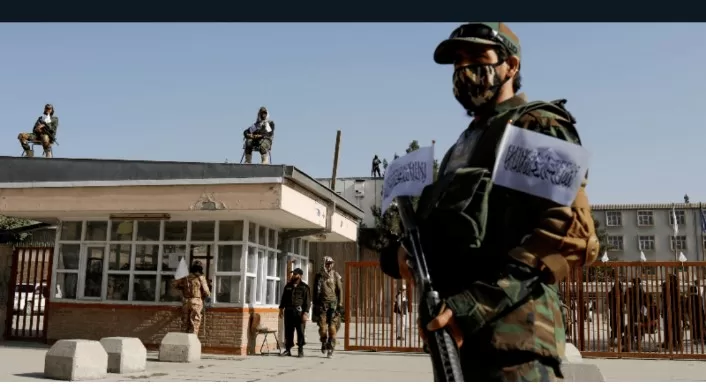In a pivotal regional security gathering convened by Russia, with notable participation from countries including China and India, a resounding call was made to the interim Afghan government. The collective plea urged Afghan authorities to take proactive measures to “dismantle” all terrorist entities operating within their borders and ensure that their territory no longer serves as a breeding ground for terrorism.
This call for heightened security measures transpired during the fifth iteration of the Moscow Format Consultations on Afghanistan, an assembly that brought together esteemed officials from Pakistan, China, India, Iran, Kazakhstan, Kyrgyzstan, Russia, Turkmenistan, and Uzbekistan. Notably, representatives from Saudi Arabia, Qatar, the United Arab Emirates, and Turkey graced the event as honored guests.
The meeting, held in the city of Kazan, Russia, on Friday, underscored Pakistan’s persistent apprehensions regarding the use of Afghan soil as a launchpad for cross-border terrorism. In a recent statement, the Pakistan Army placed blame on Kabul for the surge in militancy, citing the presence of “safe havens” and the unhindered operations of militants within Afghanistan as contributing factors. The military reiterated its expectation that the Afghan government would act against these militants and honor the Doha agreement.
A statement from the Inter-Services Public Relations (ISPR) highlighted, “The sanctuaries and freedom of action available to the terrorists of proscribed Tehreek-i-Taliban Pakistan and similar groups in a neighboring country, along with the availability of sophisticated weaponry, were noted as major factors impacting Pakistan’s security.”
A statement issued by the Russian Foreign Ministry following the meeting’s conclusion conveyed the participants’ deep concern regarding the precarious security situation in Afghanistan, primarily attributed to the heightened activities of terrorist groups, most notably ISIS.
The assembled nations collectively implored the current Afghan authorities to undertake resolute actions to “dismantle, eradicate, and prevent the establishment of all forms of terrorist groups based in Afghanistan” and to prevent the nation from being a hub of terrorism and instability that spills over into neighboring states.
They further emphasized the imperative of maintaining a genuine and effective anti-drug policy, including combatting industrial drug production—a matter of serious and growing concern.
The participants urged the Afghan authorities to bolster their collaboration with regional nations in addressing the challenges posed by terrorism and drug trafficking originating from Afghan soil. They unequivocally denounced external support for terrorism in Afghanistan.
The meeting acknowledged the lack of substantial progress in forming an inclusive government in Afghanistan that truly represents the interests of all ethno-political groups in the country. While individuals from diverse Afghan ethnic backgrounds have assumed roles within the Kabul administration, the parties noted a dearth of political pluralism.
Consequently, the gathering pressed the Afghan authorities to engage in a pragmatic, outcome-oriented dialogue with representatives of alternative ethno-political groups to expedite the process of peaceful settlement and establish a more comprehensive, inclusive, accountable, and responsible government.
Furthermore, the assembled nations urged the Afghan authorities to enhance the well-being of their people, curb further migration, and create conditions conducive to refugee repatriation. They advocated for the protection of fundamental rights and freedoms, endorsing equal access to employment, education, and justice for all citizens, regardless of gender, ethnicity, or religion.
The meeting expressed profound concern regarding constraints imposed on women’s employment and girls’ education and called on Afghan authorities to advance modern education in schools aligned with international standards.
Collectively, the participating nations championed Afghanistan’s status as an independent, united, and peaceful state, while firmly rejecting the deployment of military infrastructure by third countries in Afghanistan and neighboring states under any pretext.
In recognizing the potential for regional economic projects involving Afghanistan, the countries underscored the necessity of strengthening bilateral and multilateral economic ties.
Additionally, the gathering reaffirmed its opposition to the politicization of humanitarian aid, emphasizing the ongoing importance of humanitarian assistance to Afghanistan. It acknowledged Iran’s proposal to enhance regional cooperation on Afghanistan through the establishment of a regional contact group dedicated to addressing shared areas of interest.




